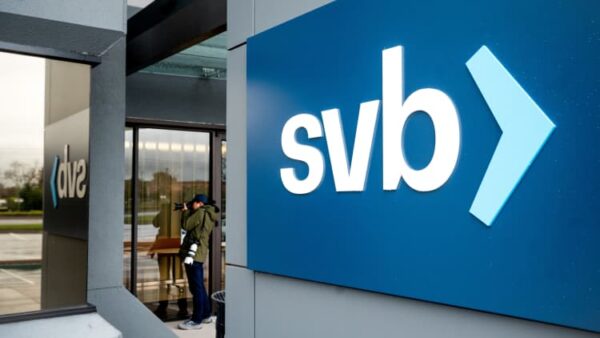Banks Collapse in the US Leads to Reduced Debt Financing for Businesses

Silicon Valley Bank
The recent collapse of banks such as Signature Bank and Silicon Valley Bank poses a threat to businesses seeking debt financing. Many people are debating whether their money is safe in US banks. However, the government will guarantee your deposits in banks, as was done recently to help protect your deposits.
Many companies are now worried about getting capital this year for their business operations, expansions, and research. Silicon Valley Bank, which had billions of dollars in cash deposits mobilized from startup clients, parked its funds in US Treasuries, the safest bet. It acquired long-term treasuries. So, it could not convert them back to liquidity quickly. The bank faced a liquidity crisis.
Silicon Valley Bank acquired low-interest long-term Treasury bonds and issued short-term loans to its clients. Long-term bonds have lost their value because of the hike in interest rates. Hence, the long-term bonds were insolvent. As a result, the depositors started withdrawing their funds after losing trust in the bank, which contributed to the collapse of Silicon Valley Bank.
Banks change risk models
Now, the banks are amending their risk models to lend capital to businesses. It means your deposits are safe. However, the companies are now facing a tough situation to avail of a line of credit or get funds to invest in businesses. Therefore, businesses face difficulty in arranging debt financing.
The companies should be prepared to pay higher interest on loans from banks and other lenders. The lenders will offer small sums, which may be inadequate for your business. They will also scrutinize your balance sheet before deciding whether to offer loans. Joseph Stone Capital’s financial experts will help with your documentation and make appropriate changes to the balance sheet to qualify for low-cost loans.
Look for alternative funding sources
The companies are now forced to look for alternate sources of funding. It is necessary to ensure that all the records are in order. Most businesses in the US do not receive bailout money from the government. The paycheck protection program (PPP) loans from the SBA were just 5.2 million out of the total of thirty million small businesses in the US. It doesn’t include gig workers, independent contractors, or solopreneurs.
Most small businesses in the US could not qualify for PPP loans because they did not have proper balance sheets, profit and loss statements, or tax returns. These could be made at a moment’s notice. However, they need to spend money to prepare all the required statements to qualify for a loan. Such small businesses can seek the services of financial experts at affordable rates and prepare their statements to get cheap loans.
The businesses can also make use of accounting software, which facilitates credit card processing, invoicing, marketing tools, and electronic payment acceptance. You can also borrow capital from credit card companies. However, interest rates on capital borrowed from credit card companies could be higher.
The businesses can also approach affordable service providers in their location, like Joseph Stone Capital, for technical assistance that includes legal advice and free accounting. It prepares the necessary statements to apply for low-interest rates. You can also check for government grants.





